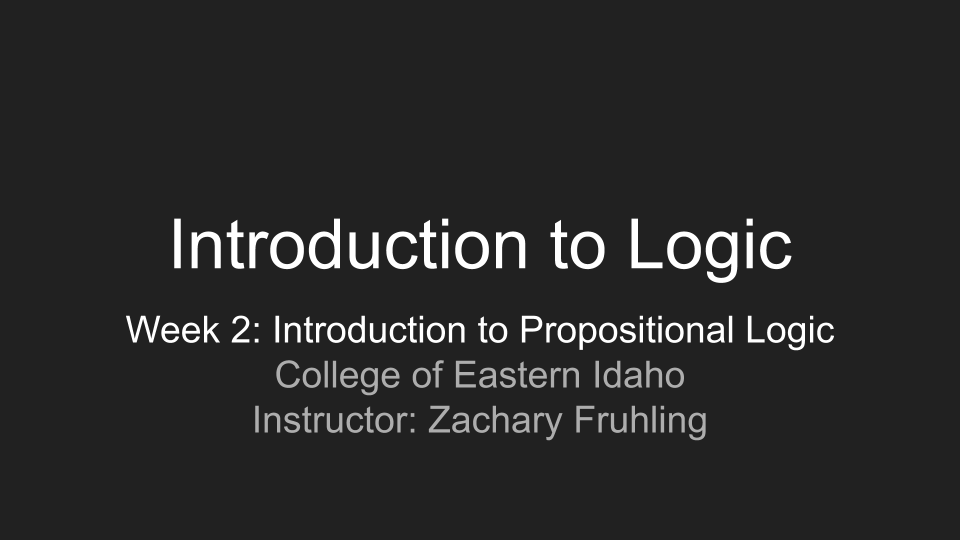The Many Ways of Being a Philosopher: Past, Present, and Future
Unlike most disciplines, philosophers themselves, throughout the history of philosophy and today, don’t agree on what philosophy really is or how it should be practiced. While most philosophers agree that philosophy isn’t just something you read or learn about—it’s something you do—philosophers differ on the degree to which philosophy should change you as a person, not just what you do but who you are, and on the nature of philosophical practices that distinguish philosophy from other disciplines, and philosophers from non-philosophers.
Some philosophers, such as Socrates, viewed philosophy as inherently communal and social. Philosophy, for Socrates, was something one practiced in public, in the agora (ἀγορά) of Athens, for the benefit and in full view of the general public. Other philosophers, however, such as René Descartes (archetypically, perhaps), viewed philosophy as a solitary and meditative activity in which the very foundation of knowledge could be discovered not through philosophical dialogue as a social activity but through pure reason and pure thought as solitary ones.
Needless to say, what it meant and looked like to be a philosopher was very different for Descartes than it was for Socrates. In fact, from philosopher to philosopher throughout the history of philosophy, philosophers have differed not only in their substantive philosophical views (e.g., whether they are rationalists or empiricists, whether they are interested primarily in metaphysics or epistemology or ethics, and so on), but also in their views about what it means and looks like to be a philosopher in the first place.
Teaching philosophy thus carries with it an extra burden (or challenge, depending on how one looks at it) above and beyond getting students to think about, or even to take seriously, the philosophical questions that somehow collectively make up the kinds of things philosophers tend to think about. But it’s not clear at all how to go about introducing therm not just to various philosophical issues and position, but also to the various ways of doing philosophy itself, the various types of philosophers they might become, and the many and varied approaches to the activity and lifestyle of philosophy they might pursue, or even invent for themselves, as I have done.
What it means to be a philosopher looks very different even for Socrates than it does to his own student Plato. Although one might think that Plato would naturally carry on the tradition of philosophy as a communal, social activity, in reality Plato’s own philosophical inclinations made it difficult for him to straddle the fence between philosophy as a social/communal activity and philosophy as an individual/solitary one. As a rationalist, Plato, like his successor in spirit, Descartes, if not sequentially in the history of philosophy, held that the job of a philosopher is to use one’s reason to obtain knowledge of the universal forms such as Justice, Love, Beauty, Goodness, and so on.
But using one’s reason is largely a solitary activity for Plato, or at least the activity of doing philosophy wasn’t as public as it was for Socrates. Students of Plato spent their days, presumably, at Plato’s Academy instead of out in the agora and the streets of Athens as Plato and the other students of Socrates once regularly did. Although perhaps philosophy itself remained dialogical even at Plato’s Academy, it took on an esoteric or gnostic quality in which insiders thought about and debated philosophical issues in private while those who were unable to think philosophically were excluded from the discussions. Hence we know more about Socrates’s public approach to philosophy than we do about the private affairs and philosophical discussions that took place behind closed doors at Plato’s Academy.
We philosophy teachers carry the extra burden of defining what the activity of philosophy, and the way of being a philosopher that our students end up adopting, in the way we present the activity of philosophy itself to our students:
Should we model our philosophy classes after Socrates, making them inherently dialogical and public experiences through and through? (If so, why are we in a classroom instead of in the campus cafeteria or the local town square?!?)
Should we model them after Plato’s Academy with students debating philosophy among themselves but keeping the precious pearls of philosophy hidden from the swine of the outside world—a dialogical but still rather hush-hush and private activity?
Should we model them after Descartes’s Meditations, full of philosophical introspection but as a solitary instead of communal activity, much in the way that students write their own philosophy papers in private, no matter what public or in-class philosophical discussions they may have had in class?
Should we turn our students into budding existentialists with the free will to live their own authentic lives, no matter what Socrates or Plato or Descartes or any other philosopher or external influence might have told them about what life, a philosophical life or otherwise, ought to be?
Should we turn students into philosophical activists, putting their political philosophy to use out in the world with an eye toward social justice and change—radical or otherwise?
Should we make students into media-savvy public philosophers who use podcasts, blogs, and social media as philosophical media, much in the same way that Michel Foucault was a publicly visible philosopher who looked good on television?
Should we model our philosophy classes after philosophical analysis in the style of Anglo-American/Analytic philosophy, with argument analysis and formal methods at their core?
Or should we style our classes in the manner of Continental philosophy with its more literary approach and with its phenomenological and critical methods, and aims, and purposes?
As you can see, it’s not clear at all how exactly one should go about teaching philosophy students to be philosophers, much less what being a philosopher even means in the first place, given the many and varied ways in which philosophers through the ages have thought of their own identities as philosophers. In reality, most of us philosophy instructors weave in and out of these various approaches to being a philosopher and to philosophical methods and approaches. Philosophical discussion or debate in a classroom setting is more like a Socratic dialogue, or at least like spending a couple of hours a week at Plato’s Academy, while writing a philosophy paper late at night by the faint glow of one’s laptop screen is more of a solitary Cartesian activity.
I worry sometimes that we well-intentioned philosophy instructors, however much we might succeed at teaching students to think about a wide range of philosophical issues, don’t spend enough time showing students the many different approaches one might take to being a philosopher, and the many different activities, practices, and identities that each of those different ways entails. It’s almost too easy to steer students to one or more specific ways of approaching philosophy. But it’s not so easy to let students choose for themselves what it means to be a philosopher in the first place. And we are kidding ourselves as philosophy instructors if we pretend that this radical diversity in approaches—again, not just about philosophical topics and theories but in terms of one’s very identity as a philosophy—doesn’t exist, as even a cursory look at the history of philosophy should make clear.
We teach students about hedonism, but we don’t show them what it means to be or to live as a hedonist. We teach them about stoicism but don’t show them what it means to live life and to look at the world around them as a stoic. We teach students about Cartesianism without demonstrating the power of the solitary mind in their lives, thoughts, and philosophical reflections. We teach students about Aristotelian virtues but don’t teach them to be virtuous or to develop the habits for living that will help them be the national, political, social animals Aristotle intended them to be. We teach them Wittgenstein without teaching to be playful in their language or to invent their own language games. We teach them about Nietzsche’s use of aphorism and metaphor without teaching them to be artistic authors of their own life stories, while unfairly demanding that they be philosophical literalists while sucking the vey life and liveliness out of their own writing. We teach them to write philosophy papers, but we don’t teach them philosophical style or panache. We teach them logic without teaching them to be logical, or to see the limits of logic in their own lives and the world around them. (As Spock once said in Star Trek VI: The Undiscovered Country, “Logic is the beginning of wisdom, not the end.”)
No, we obviously can’t teach students merely to read or learn about philosophy. But we likewise shouldn’t teach our students merely to do philosophy in some narrow, prescriptive sense to the exclusion of all the other different ways of being a philosopher that they might choose. (One might cynically say that the true job of philosophy instructors is to produce new philosophy instructors—or perhaps cheap pedagogical labor in the form of teaching assistants—in today’s college and university environment.) When was the last time a philosophy instructor showed their students, really showed them, how to be and live as a philosopher in the same way that Plato showed his students, sometimes for decades at a time? And when was the last time we let them really be Platonists (or Aristotelians or Stoics or Hedonists or Cynics or Medievalists or Cartesians or Empiricists or Kantians or Logicians or “Philosophers of the Future,” as Nietzsche once called them)? We spend far too much time on philosophical views but not enough time on the art of living, the art of philosophizing, and the (creative) art of being a philosopher as conceived of by the many types of philosophers throughout history, in ways as unique as each philosopher was him- or herself compared to those who came before.
Instead we should push students to find new ways of being philosophers, to develop their own philosophies for their own times in the same way that Socrates was a product of his own times as a counterpoint to the sophists of the day, and just as every philosopher from then until now was a creature of his or her own time, making the most of his or her time in the sun in the attempt to break the mold of what philosophy and being a philosopher had meant until that then-new moment in time.
This is our day in the sun, and very soon it will by students’s day, and their students, their students’ students after them. If we don’t teach students to push the boundaries about what philosophy means, and what it means to be and live as a philosopher, philosophy—and the spirit of philosophy—will stagnate, atrophy, and ultimately wither away, to be replaced only by the ubiquitous practical concerns of this, that, or the other specialized science or political and professional interest. If we don’t teach them to be, and strive to be, new kinds of philosophers, we will ultimately fail at teaching them to be philosophers in the first place. For who wants merely to be a shadow of what came before without coming into one’s own as a philosopher, and, frankly, as human being in general? If we don’t show students that what it means and what it has meant to be a philosopher is itself not constant, we will never show them that genuine change, progress, and authenticity are really possible, and they really will be mere be “footnotes to Plato,” as Alfred North Whitehead once put it—and sad, pathetic little footnotes to Plato at that.







